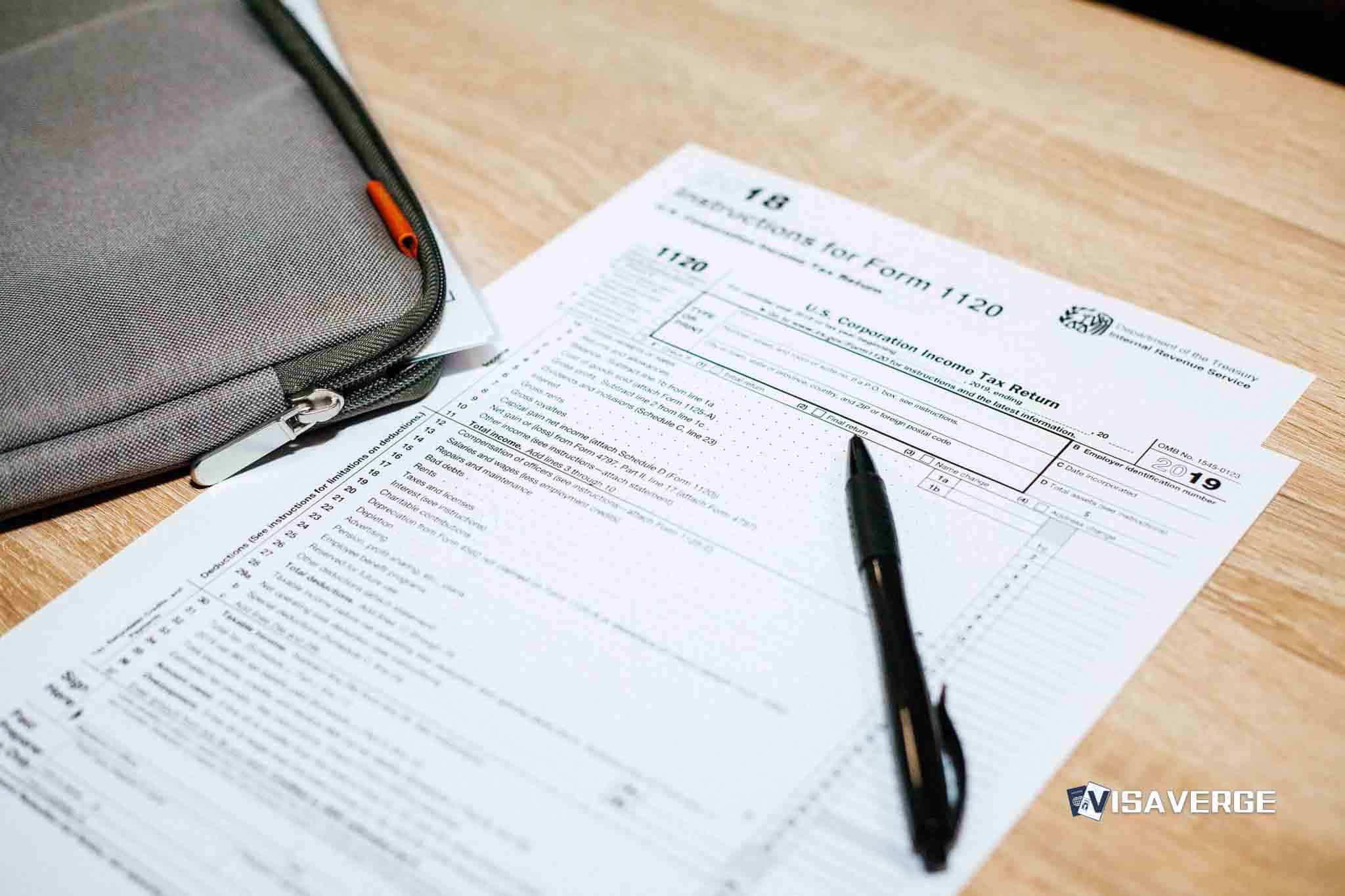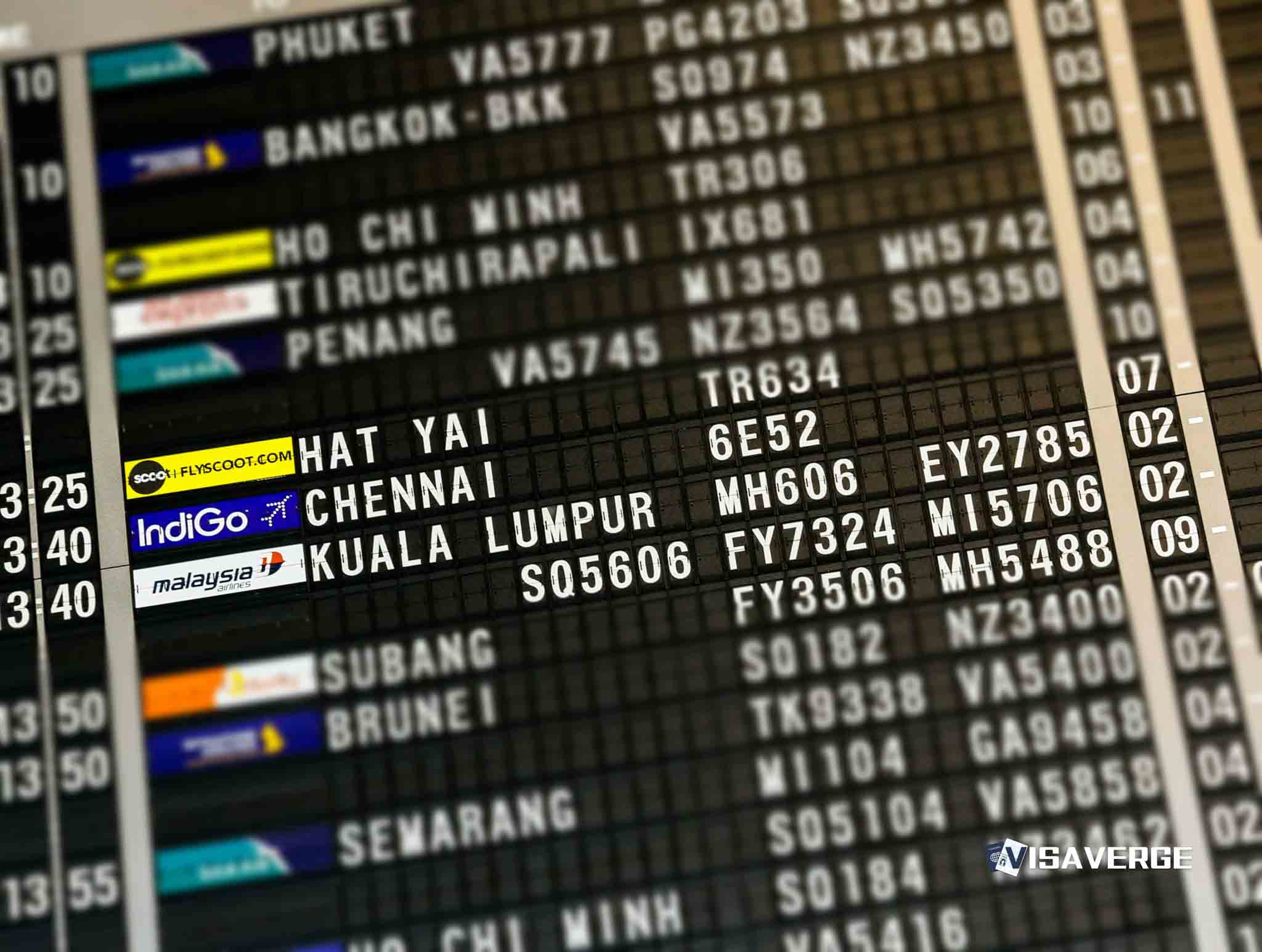U.S. Citizenship and Immigration Services has tightened the rules around the medical exam that many green card applicants must file, making the document more time- and case-specific than at any point in recent years. As of September 21, 2025, USCIS is enforcing a policy that ties the validity and use of Form I-693, Report of Immigration Medical Examination and Vaccination Record strictly to the single immigration benefit application it accompanies. The change applies to all cases pending or filed on or after June 11, 2025.
The move ends the short-lived practice of treating certain recent medical exams as reusable across multiple filings and requires most applicants seeking adjustment of status to include the sealed medical report at the time they file Form I-485. USCIS says the shift is designed to keep medical records current at the moment of decision, reduce health risks, and align with public health standards.

Key change: form tied to a single application
Under the current approach, a Form I-693 submitted with an adjustment case is good for that case only. If USCIS denies the filing or the applicant withdraws it, the medical exam cannot be recycled for a new application. A fresh exam and a newly completed Form I-693 must be obtained and submitted for any later filing.
Agency officials concluded the prior indefinite validity rule for forms signed on or after November 1, 2023 went too far and could leave officers relying on health information that no longer reflects an applicant’s present condition. Immigration lawyers flagged the shift back to conservative handling of medical reports, stressing families should budget time and money for a second medical if the first case does not move forward.
Important: the medical form is now case-specific. If your case is denied or withdrawn, plan to get a new
Form I-693for any new filing.
Narrow exception for intake rejections
There is a limited exception when USCIS rejects an application package at intake (for example, missing signature or wrong fee) rather than denying it on the merits.
- If a packet is rejected and the sealed medical envelope was returned or opened during intake, the same
Form I-693may be resubmitted with the corrected filing and the rejection notice. - This carveout prevents unnecessary re-testing after a clerical mistake and keeps people from being penalized for simple packaging errors.
- The exception does not extend to denials or withdrawals; an accepted medical tied to a denied case cannot carry over to a new filing.
If USCIS returns your packet, keep the rejection notice and the sealed envelope intact—do not open it.
Edition rules and timing
USCIS set clear rules about which editions of Form I-693 are acceptable.
- Starting July 3, 2025, the agency will accept only the 01/20/2025 edition of
Form I-693. - Until that date, applicants may file either the 03/09/2023 edition or the 01/20/2025 edition.
- The edition that matters is the version the civil surgeon uses and signs, not the date you mail the form. That means applicants scheduling exams after July 3 should confirm their civil surgeon is using the 01/20/2025 edition and is familiar with current vaccine guidance.
Civil surgeons have been urged to update templates, stock the newest forms, and ensure staff follow the latest vaccination and screening instructions.
Grandfathering: older medical exams
An important grandfathering rule covers older medical exams:
- If a civil surgeon signed the
Form I-693before November 1, 2023, the report keeps a two-year validity period from the date of signature. - That two-year countdown does not reset if the applicant later files a new case; it reflects how long the earlier medical can be used for the application it supports.
- For many families, that two-year window has already closed, and the current application-specific rule now controls.
Filing timing requirement (effective Dec 2, 2024)
Effective December 2, 2024, USCIS began requiring most applicants to file Form I-693 at the same time as Form I-485. This ended prior flexibility that allowed submitting the medical later (e.g., after an RFE or interview).
- Missing medicals at filing can trigger processing delays or, in some cases, denials for failure to provide required initial evidence.
- Applicants should book their medical exam early and ensure the sealed envelope is ready with the adjustment packet.
Why USCIS reversed course
USCIS cites:
- Public health protections and the need for up-to-date information at adjudication.
- Medical and vaccination standards evolve; older tests may not reflect current requirements or an applicant’s present health.
- Alignment with CDC emphasis on timely, accurate records so officers can trust a sealed
Form I-693represents recent, complete data for the exact case under review.
Practical example
Consider a couple who filed an adjustment case in early 2025 using a medical exam completed in late 2024. If USCIS denies the application due to a separate eligibility issue, they cannot reuse that sealed Form I-693 for a second try, even if the envelope was never opened. They must repeat exams and vaccinations as needed and submit a new form with their new Form I-485. The same applies if an applicant voluntarily withdraws an adjustment case then refiles.
Edition vigilance and civil surgeon responsibilities
The edition requirement is as important as timing:
- Many medical offices update forms in batches; it’s easy to end up with the wrong edition if staff print older copies.
- Check the bottom of each page for the edition date and confirm the civil surgeon signs the correct version.
- For exams on or after July 3, 2025, the surgeon must use the 01/20/2025 edition.
- Civil surgeon signature date controls edition compliance and which validity rule applies.
Clinics serving large immigrant communities have updated intake forms to capture case status and remind patients to bring ID, prior vaccine records, and TB test results. A clean, complete medical can save months.
Handling of sealed envelopes and electronic copies
- The medical must be submitted in the original sealed envelope prepared by the civil surgeon unless USCIS specifically asks for an electronic copy after filing.
- Opening the envelope invalidates the report and can force a new exam.
- If USCIS needs a scanned copy for a transfer or interview, the agency will request it directly.
Store the sealed envelope safely. If it’s damaged, USCIS may not accept it.
Cost and planning implications
USCIS acknowledges the policy may add costs for some families, particularly if a first case ends without approval and a second filing is necessary. The agency says the health benefits and clarity outweigh the burden.
To reduce surprises, applicants should:
- Schedule the medical exam early to include the sealed envelope with the initial adjustment packet.
- Verify the civil surgeon will use the correct edition on and after July 3, 2025.
- Keep a dated personal record of the exam and vaccinations.
- Understand that a denied or withdrawn application means a new medical will be needed for future filings.
- If your package is rejected at intake, resubmit the same sealed medical with the rejection notice.
Impact on applicants, employers, and civil surgeons
- Spouses filing straightforward adjustments: main change is planning—book the medical immediately so
Form I-693goes in withForm I-485. - Applicants with complicated eligibility: higher risk of needing a second medical if a denial or withdrawal occurs; factor that cost into legal strategy.
- Employers and HR: face scheduling pressures, especially near visa bulletin cutoffs; employers can help by giving early notice and listing preferred civil surgeons.
- Civil surgeons: must monitor edition updates, ensure correct signing and date, and follow current vaccination schedules to prevent rejections.
Attorneys note the rejection exception provides real-world relief for lockbox mistakes, but applicants should still avoid opening returned medical envelopes.
Streamlined post–June 11, 2025 process
1) Book the immigration medical exam with a USCIS-designated civil surgeon.
2) If your appointment is on or after July 3, 2025, confirm the surgeon uses the 01/20/2025 edition of Form I-693.
3) Bring vaccine records, government-issued ID, and prior TB test results.
4) Keep the sealed envelope closed. Do not open it.
5) Submit the sealed Form I-693 with your initial Form I-485 filing.
6) If USCIS rejects your package, correct the mistake and resubmit the same Form I-693 with the rejection notice.
7) If USCIS denies your application or you withdraw it, schedule a new exam and file a new Form I-693 with any future application.
Where to find official instructions
Applicants can find official instructions and the current edition of the medical form on the USCIS website:
- USCIS Form I-693: https://www.uscis.gov/i-693
Also review the Form I-485, Application to Register Permanent Residence or Adjust Status page on USCIS.gov when preparing your filing.
Timeline of key dates
- December 2, 2024: USCIS requires
Form I-693to be filed withForm I-485. - November 1, 2023: Cutoff for the older two-year validity rule; forms signed before this date keep a two-year window from signature.
- June 11, 2025: New policy takes effect for applications pending or filed on or after this date—each
Form I-693tied to a single application. - July 3, 2025: USCIS begins accepting only the 01/20/2025 edition of
Form I-693. - September 21, 2025: Enforcement of the application-specific validity policy.
Public health and adjudication rationale
Making the medical case-specific is a cautious approach:
- Immigration medical exams screen for communicable diseases and verify required vaccinations.
- If an exam sits on file while a case stalls, results may drift out of sync with current standards or the applicant’s health.
- USCIS prioritizes certainty that the record in hand is tailored to the case being decided.
While the previous indefinite validity rule reduced costs and saved time, USCIS now prioritizes up-to-date, case-specific medical data.
Interview practices and records
- At adjustment interviews, officers often confirm that
Form I-693on file is complete and acceptable. - Because
Form I-693must be filed up front, many applicants will have the medical already in the file at interview, which can reduce post-interview delays. - Keep personal copies of vaccine cards and test dates to simplify any future exams. Some applicants use spreadsheets or secure cloud folders to track exam dates, surgeon names, and edition versions.
Final checklist for applicants
- Plan early and schedule your exam in time to include the sealed envelope with your initial
Form I-485. - Verify the civil surgeon’s form edition—if on/after July 3, 2025, it must be 01/20/2025.
- Do not open the sealed medical envelope. Keep it intact and store it safely.
- Keep dated records of vaccinations and tests for your files.
- If your package is rejected at intake, resubmit the same sealed medical with the rejection notice.
- If your application is denied or withdrawn, expect to obtain a new medical for any subsequent filing.
USCIS encourages civil surgeons and applicants to check the agency website regularly for updates on form editions and medical instructions. When in doubt, consult qualified counsel—especially if eligibility hinges on factors beyond the medical exam.
Frequently Asked Questions
This Article in a Nutshell
USCIS updated its policy to make Form I-693 case-specific, effective for cases pending or filed on or after June 11, 2025, with enforcement on September 21, 2025. Most applicants must submit the sealed medical exam with Form I-485 as required since December 2, 2024. Denied or withdrawn cases cannot reuse the same Form I-693; a new exam and form are required for subsequent filings. A limited exception permits reuse if USCIS rejects the packet at intake and returns the sealed envelope. Edition rules require the 01/20/2025 edition only starting July 3, 2025, while forms signed before November 1, 2023 retain a two-year validity. Applicants should schedule exams early, verify the surgeon’s edition, keep the envelope sealed, and budget for potential re-testing if cases fail.







